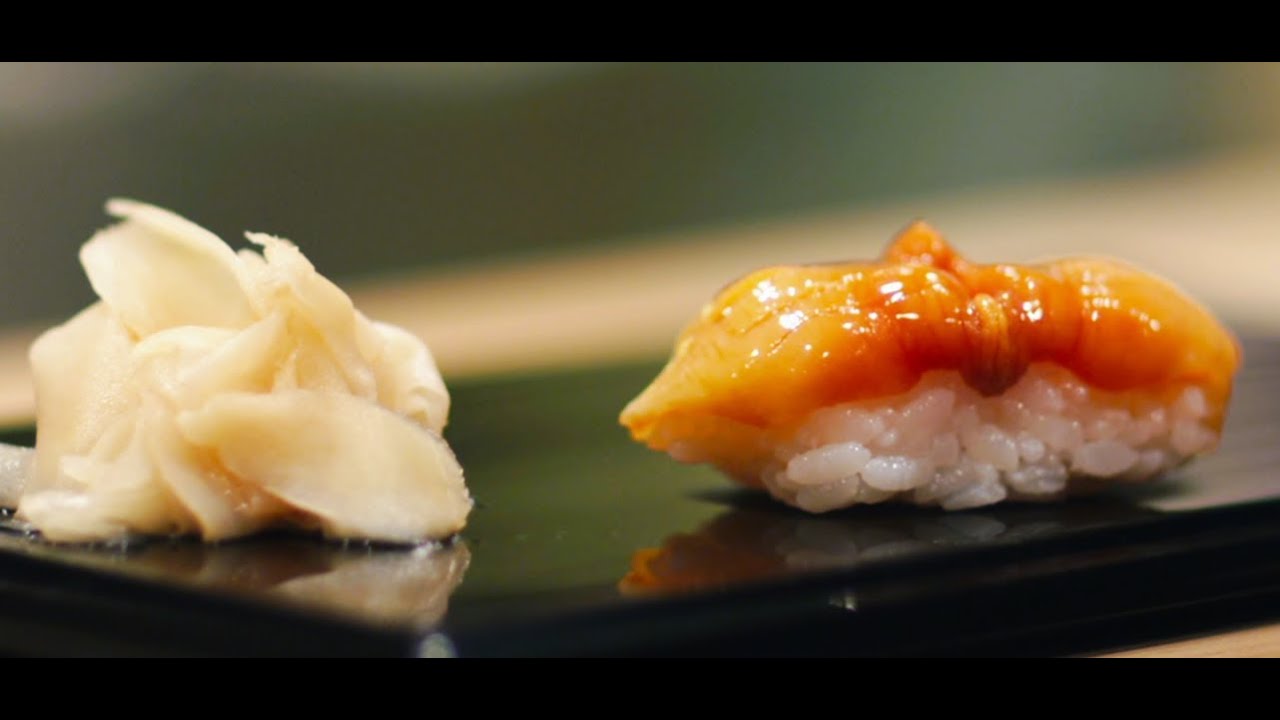By Chlotrudis Independent Film Society
Rating: 3.75 cats
Director: David Gelb

Country: united_states
Year: 2012
Running time: 81
IMDB: http://www.imdb.com/title/tt1772925/
Jason says: “I can’t say I’m a particular fan of sushi; in fact, I’m quite the culinary coward. But you don’t have to like a particular food to admire fine craftsmanship and dedication, and those are things that Jiro Ono has plenty of. David Gelb’s documentary on the man isn’t exactly short on them, either.
“Jiro Ono is 85 years old, and has been making sushi for about seventy-five of them. Despite being located in a Ginza subway station, his restaurant, Sukiyabashi Jiro, may be the world’s best. It has a mere ten seats and is booked for lunch and dinner at least a month in advance – and that meal will run a visitor roughly three hundred dollars, depending on what is available at the fish market that morning. Many of Jiro’s former employees have gone on to open their own well-regarded restaurants, including his younger son Takashi, but elder son Yoshikazu still toils alongside his father after thirty years as the designated successor to a man who appears to have no interest in retiring.
“There are several different threads running through JIRO DREAMS OF SUSHI, but the most important is perhaps that a job done well brings pleasure. Though food writer Masuhiro Yamamoto does, eventually, describe innovations Jiro made in how a meal is structured, that is given less attention than how Jiro is shokunin, a true master who feels responsible to do his best. Throughout the movie, director David Gelb gives us further examples of how Jiro makes a bit more effort: He deals with the seafood and rice merchants that have the highest standards, cooks the rice under higher pressure than anyone else, has his staff massage the octopus for twice as long, and he and Yoshikazu sample the wares constantly to maintain quality control. A scene at the end demonstrates how this attention to detail extends all the way to how he places his morsels on each individual customer’s plate.
“It takes a certain kind of personality to find pleasure and serenity in that sort of repetition to exacting standards (many apprentices quit after one day), though not necessarily the one a viewer might expect from other profiles of chefs as difficult rock star types. Jiro comes across as quite vital for an elderly man, with flashes of self-deprecating humor to offset plenty of self confidence. Gelb does a nice job of teasing out the gradations of his personality despite much of the audience needing to follow the subjects’ words through subtitles: There are hints of Jiro’s controlling nature in the restaurant carrying over to his relationship with his sons, for instance, and Yoshikazu is an intriguing fellow: He often seems more laid-back and less ambitious than Jiro and Takashi, the ideal of a respectful son. He so seldom seems guarded that the moments where he seems to chafe certainly elicit audience curiosity.
“It’s a bit of a stereotype to say that Gelb has his work cut out for him because his subjects are Japanese and in a very traditional business, but a tendency among the Onos toward extreme politeness and respect for tradition does make it harder for him to build a narrative. If Yoshikazu would like to get out of his father’s shadow, he keeps it well-hidden; the audience must also infer any thematic connection between Jiro’s absent father and his sons’ strong ties. There’s a lot of things in the movie that would be fodder for a fine dramatic picture in a fictionalized version, but which stays under the surface here. A segment toward the end lamenting the increasing lack of quality seafood, while sincere, seems included to get the movie just a few minutes longer so that it feels feature-length.
“The movie does serve as pretty good food porn, though. Even those not too enamored of that particular cuisine will have to admire the simple beauty of his creations, not just in the loving beauty shots, but in the footage of every stage of preparation. Gelb also finds time to talk about food intelligently, adding a bit of extra flavor to those shots.
“There may be juicier stories to be told about Jiro, his sons, and their quest for excellence in their field, but this is not a documentary that tells tales out of school. What we do see leaves no doubt about Jiro being a fascinating subject, and even those who don’t much like sushi should find this a tasty morsel. 4.5 cats
“Seen 19 April 2012 in Coolidge Corner Theatre #1 (first-run, 35mm)”
Chris says: “I admittedly find pleasure in witnessing audiences flock to a doc about Jiro Ono, an eighty-five year old sushi chef. His restaurant, a ten-seat kiosk inconspicuously located inside a Tokyo subway station, is booked months in advance. I assume that the art and science of crafting sushi holds an allure for anyone who eats the stuff (myself included)—the preparation is entirely its own thing in terms of world cuisines (I was most intrigued by the technique of ‘massaging an octopus’ for over forty minutes to ensure ideal tenderness). Ono’s life story with his complete dedication to and love of his trade are enough to build a film around him. However, even at 81 minutes, it feels repetitious and prolonged—perhaps I would have gotten more out of it if Ono were less reserved (although I enjoyed his steely glare at a pokey customer) and half as colorful as, say, Kenny Shopsin of I LIKE KILLING FLIES, itself a great, little-seen doc that explores a similar mélange of food, art and life with much less pretension. 3 cats”
